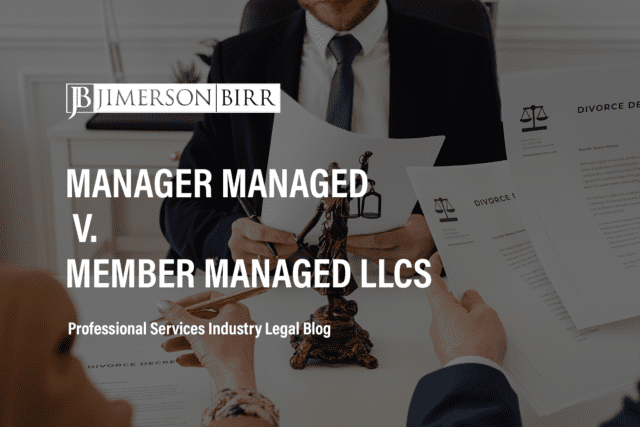What do board committee structure and composition entail?
Board committee structure and composition encompass the organization, roles, and responsibilities of various committees within a corporation’s board of directors. Florida and federal laws, along with corporate bylaws, dictate the formation and functioning of these committees.
Need help with a matter related to board committee structure and composition? Schedule your consultation today with a top corporate and board of directors governance and operations attorney.
Which Florida and federal laws and regulations apply to board committee structure and composition?
In Florida, several laws and regulations govern board committee structure and composition. The Florida Business Corporation Act (FBCA) outlines the general provisions for the organization and operation of business corporations, including guidelines for establishing board committees. In addition to the FBCA, corporations must adhere to federal regulations, such as the Sarbanes-Oxley Act of 2002, which impose requirements on public companies’ audit, compensation, and nominating committees.
It is essential for corporations operating in Florida to consult with legal counsel to ensure compliance with both state and federal laws and to stay up-to-date with any changes in the legislative landscape. Corporations can maintain effective governance and avoid potential legal pitfalls by adhering to these laws and regulations.
What board committee structure and composition issues commonly lead to litigation?
The following issues are among the most common in litigation involving board committee structure and composition:
- Breach of Fiduciary Duty: Directors and officers may face litigation if they have breached their fiduciary duties, including duties of care, loyalty, and good faith, which can result from the mismanagement of board committees or failure to oversee committee activities adequately.
- Conflicts of Interest: Litigation may arise when a board member’s interests conflict with the corporation’s interests, compromising the board committee’s decision-making process and potentially leading to decisions that harm the company.
- Inadequate Disclosure or Transparency: Board committees may face litigation if they fail to properly disclose relevant information to shareholders, regulators, or other stakeholders, leading to disputes over decision-making processes and outcomes.
- Violation of Corporate Bylaws or Governing Laws: Disputes may arise when the formation or functioning of board committees violates a corporation’s bylaws or applicable state and federal laws, such as the Florida Business Corporation Act or the Sarbanes-Oxley Act.
What are effective measures to minimize the risk of litigation over board committee structure and composition?
Implementing the following strategies may help mitigate risk:
- Establish Clear and Comprehensive Bylaws: Bylaws should outline the responsibilities, authority, and processes of each board committee, ensuring that committee members understand their roles and expectations.
- Regularly Review and Update Bylaws and Policies: Corporations should periodically review and revise their bylaws and policies to ensure compliance with current laws and regulations and address any emerging issues that may lead to disputes or litigation.
- Conduct Thorough Due Diligence When Appointing Committee Members: Careful selection of committee members with the necessary skills, experience, and independence can reduce the risk of conflicts of interest, poor decision-making, and breaches of fiduciary duty.
- Implement Strong Internal Controls and Oversight Mechanisms: Ensuring adequate oversight and control over board committee activities can minimize the risk of mismanagement, breaches of fiduciary duty, and other issues that may lead to litigation.
- Foster a Culture of Transparency and Accountability: Encouraging open communication, transparency, and accountability among board members and committees can help identify and address potential issues before they escalate into legal disputes.
- Seek Legal Counsel When Necessary: Engaging experienced legal counsel can help corporations navigate complex governance issues, ensure compliance with applicable laws, and address potential legal risks before they result in litigation.
When a set of facts is appropriate to meet litigation requirements, there are many paths a claimant may take. We are value-based attorneys at Jimerson Birr, which means we look at each action with our clients from the point of view of costs and benefits while reducing liability. Then, based on our client’s objectives, we chart a path to seek appropriate remedies.
To determine whether your unique situation may necessitate litigation, please contact our office to set up your initial consultation.
Frequently Asked Questions
- How often should board committees meet?
The frequency of board committee meetings depends on the specific needs and requirements of the organization. However, committees should meet regularly enough to fulfill their responsibilities and effectively address any emerging issues. This frequency may range from quarterly to monthly or more frequently if needed.
- Can non-board members serve on board committees?
Sometimes, non-board members may serve on board committees to provide valuable expertise or specialized knowledge. However, organizations should carefully consider potential conflicts of interest and ensure that non-board members are subject to the same fiduciary duties as board members.
- What is the role of the board chair in overseeing board committees?
The board chair plays a crucial role in overseeing board committees by facilitating communication between committees and the entire board, ensuring they effectively fulfill their responsibilities, and providing guidance on strategic initiatives. The chair may also participate in the selection of committee members and the development of committee charters.
Have more questions about governance or operations for your business?
Crucially, this overview of board committee structure and composition does not begin to cover all the laws implicated by this issue or the factors that may compel the application of such laws. Every case is unique, and the laws can produce different outcomes depending on the individual circumstances.
Jimerson Birr attorneys guide our clients to help make informed decisions while ensuring their rights are respected and protected. Our lawyers are highly trained and experienced in the nuances of the law, so they can accurately interpret statutes and case law and holistically prepare individuals or companies for their legal endeavors. Through this intense personal investment and advocacy, our lawyers will help resolve the issue’s complicated legal problems efficiently and effectively.
Having a Jimerson Birr attorney on your side means securing a team of seasoned, multi-dimensional, cross-functional legal professionals. Whether it is a transaction, an operational issue, a regulatory challenge, or a contested legal predicament that may require court intervention, we remain a tireless advocate every step of the way. Being a value-added law firm means putting the client at the forefront of everything we do. We use our experience to help our clients navigate even the most complex problems and come out the other side triumphant.
If you want to understand your case, the merits of your claim or defense, potential monetary awards, or the amount of exposure you face, you should speak with a qualified Jimerson Birr lawyer. Our experienced team of attorneys is here to help. Call Jimerson Birr at (904) 389-0050 or use the contact form to schedule a consultation.
Here are some blogs written by JB attorneys that provide more information about board committee structure and composition:

We live by our 7 Superior Service Commitments
- Conferring Client-Defined Value
- Efficient and Cost-Effective
- Accessibility
- Delivering an Experience While Delivering Results
- Meaningful and Enduring Partnership
- Exceptional Communication Based Upon Listening
- Accountability to Goals











